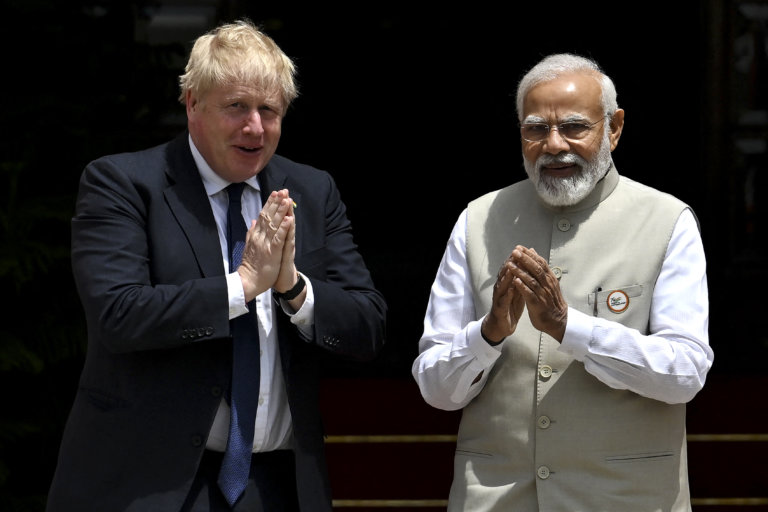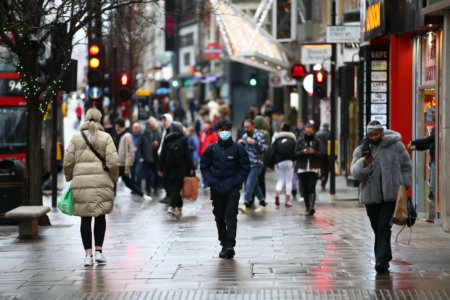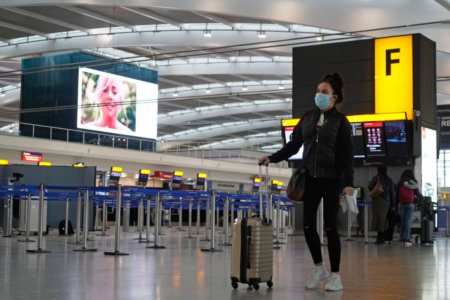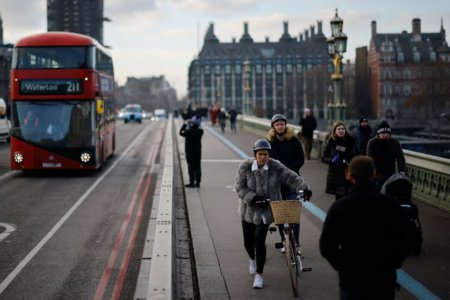
The UK-India trade deal may bring easier access to visas for Indian students, improving the mobility for thousands of incoming learners to British shores.
UK Prime Minister Boris Johnson and Indian Prime Minister Narendra Modi have established intentions for bilateral free trade agreements between their two countries. Discussions began in January, with India hoping to settle agreements by October 2022.
The third round of discussions, beginning April 25, 2022, was marked by Johnson’s visit to India on Thursday. Agreements across other sectors, including defence, security and education, were thought to be included in Johnson’s visit.
India in particular hopes for greater opportunities for their nationals to study, live and work in the UK. A UK-India trade deal could see the relaxing of rules and lowering of fees for Indian students and workers migrating to the country.
“I have always been in favour of talented people coming to this country,” Johnson was quoted by Reuters. “We are short to the tune of hundreds of thousands of people in our economy and we need to have a progressive approach and we will.”
Skilled students and graduates from India could help tackle labour shortages in critical sectors such as information technology in the UK.
“If you look, for instance, at IT or computer programming, there are areas where there’s no question that Indian skills can make a difference,” Johnson said in New Delhi. “I’m going to prioritise skilling up the British people to do those jobs, but I’m not going to be dogmatic in refusing to allow people with skill and talent to aspire to come to the UK.”
According to Reuters, more than a million people of Indian origin have migrated and currently live in the UK. Reports show that the UK is becoming more popular with Indian students despite the ongoing pandemic, increasing by 27% in 2020-21 and representing 19% of all non-EU enrolments.
This has largely to do with the introduction of the UK Graduate Route, which has opened up opportunities for international students to stay and work after they’ve completed their studies. It’s particularly popular due to the fact that graduates are not required to seek sponsorship from a company to legally work in the UK. Undergraduate and postgraduate students can stay and work for up to two years, while doctoral students are given three years.
India is the most natural partner for the UK in terms of education, according to Sanam Arora, founder and chairperson of National Indian Students and Alumni Union UK.
“Post-study work rights are critical to that offer, and the results of that are already being seen in the doubling of numbers from India and I do think this increase will continue. I am excited to see what comes out of the FTA negotiations,” Arora was quoted saying to the Times of India.

Other points of discussion include greater access to medical devices and to legal, accounting, and financial services. Source: Stefan Rousseau/AFP
UK-India trade deal: Round-up
Apart from a talk on visas, the majority of the UK-India trade deal discussions are concentrated around lowering import duty on Scotch and other whiskies in India. This is to take advantage of the massive consumption of whisky in India — which, due to high import taxes, is mostly made within its borders.
According to Trade Secretary Anne-Marie Trevelyan, breaking into this market would signify a “golden opportunity” for the UK, likely to increase the total trade between the two countries by around 28 billion British pounds by 2035. Without the current 150% tariff on imported liquor, British exports could rise by over one billion pounds over the next five years.
Other points of discussion include greater access to medical devices and to legal, accounting, and financial services. On top of this, attempts to convince the Modi government to condemn Russia’s invasion of Ukraine and join efforts with the UK to economically isolate Moscow were thought to be discussed, according to a source from Bloomberg.
This UK-India trade deal falls in line with Britain’s post-Brexit priorities, as ministers in the country hope to redirect policy towards faster-growing economies along the Indo-Pacific region.










